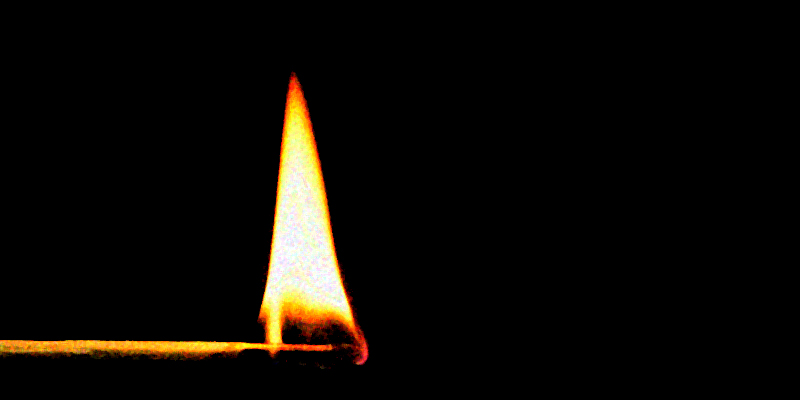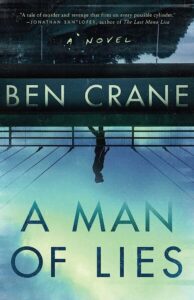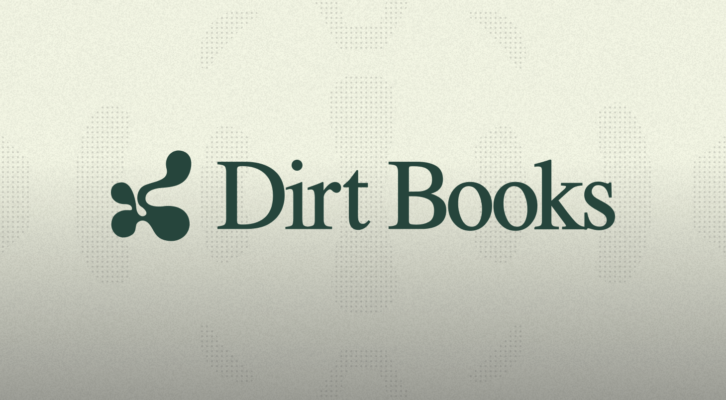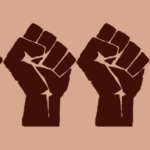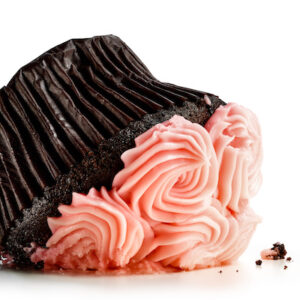I didn’t set out to write a crime novel.
I mean, I did. Obviously. A book isn’t the sort of thing that just happens by accident. But I never thought this would be the genre I found a home in.
I’ve loved crime fiction ever since a bookseller put a copy of Dennis Lehane’s Mystic River into my hands and I learned it is more than just hardboiled cliches and overwrought metaphors describing women’s legs.
Crime fiction is a dark mirror, painting the world’s flaws in stark relief. It is a genre of desperation, where the iniquities of civilization drive men and women to the brink. It asks what we are truly capable of when everything is on the line. Its facets reveal the hidden and unseen that we’d rather be allowed to ignore. It is, most of all, an unflinching portrayal of our cracks and failures, both as individuals and as a culture.
It fascinated me as a reader. But as a writer? I didn’t think these were the kinds of stories I wanted to tell.
At the end of a Western, the gunslinger rides off into the sunset not because his happy ending awaits him there, but because he will never find a happy ending. The Western’s great tragedy is that its hero never gets to enjoy the fruits of his labors. He drives out the bandits and brings civilization to the frontier, but he is not a civilized man (and he is almost always a man), so his final act must always be to leave. No matter how much Joe Starrett pleads, Shane will never come back.
But what happens when there is no more frontier? When there is nowhere left for Gary Cooper to go after throwing his marshal’s badge in the mud? When he is forced to remain in a civilization that doesn’t want him? Well then we get the noir, the story of the uncivilized man trapped in a broken culture. It’s no coincidence Elmore Leonard wrote Westerns before he wrote crime.
The hero of crime fiction, whether he is a criminal or a detective, always exists outside the bounds of a society to which he is not suited. As Jack Reacher wanders from town to town, he solves problems, but he doesn’t put down roots. He is guided solely by his own compass. In this broken world the only thing you can count on is yourself. You must gird yourself in the armor of callousness to survive.
I know I’m far from the first to draw a line from crime fiction to toxic masculinity. When everything could be a threat, self-reliance is the only safety. Openness is weakness. Tenderness is death.
I was midway through a rewatch of The Wire, a show I return to every few years, and I found myself dreading each episode. While the show is undoubtedly brilliant, it is also unrelenting in its cruelty and nihilism. There is no hope in David Simon’s Baltimore. No good intention that doesn’t bring more pain. No amount of effort or stroke of genius that can’t be wiped out by a momentary contact with an uncaring system. It is compelling and brilliant and insightful, but it also left me feeling empty and hopeless.
And I’m tired of feeling hopeless.
We live in the Anthropocene. It is the age of mass shootings. Fascism is on the rise around the world. I passed a Nazi demonstration on my way to visit friends the other week. Antisemitic and antimuslim violence is commonplace. Income and wealth inequality are at levels not seen since the Gilded Age. Trans and non-binary folk are beaten and killed over bathrooms and book readings. People of color are murdered by neighbors and police with impunity. Carbon pollution threatens an end to human civilization as we know it.
There is so much darkness that to simply point it out and cry nihilism feels a bit, well, nihilistic. I’m not so vain as to think that I have the solutions to all of society’s ills, but I wanted to create something that left my reader feeling invigorated to try to find them.
So I decided to write a crime novel. For where better to sing a paean to empathy and hope and love than in the genre that so steadfastly insists on rugged individualism over the weakness of emotional vulnerability.
A Man of Lies is the result of that effort. My protagonist and narrator, Barrett Rye, is a queer man of color. He is a muscle-bound giant who has been working as a mob enforcer because that is all that society believes him capable of. He is reserved and silent, expressing few opinions and no emotions. He is utterly without hope, trapped entirely in a cruel world of toxic masculinity that denies him all agency and personhood.
Then he falls in love and for the first time in his life he feels seen. It is exhilarating and terrifying and upends everything he thought about who he can be and what he can have. Until the man of his dreams is murdered. The book, as much as it is a twisty thriller, is the story of his fight to find that purpose once more. He’s seen a path out. He’s been given hope that the broken world can improve.
If you’ll forgive me one final tangent, that rallying cry of the 20th century gay rights movement—“We’re here. We’re queer.”—has always felt profound to me. It is not only a demand that queer people be recognized, but a celebration of the power that comes from being seen. To be invisible is to be powerless.
And crime fiction is the fiction of the unseen. The cast off. The society of these books ignores its victims and would rather its heroes not exist. The masculinity at its heart is a direct reaction to that. If you won’t see me, it says, then I reject you. I will rely only on myself. You can’t fix the broken system, but only fight to survive it. That’s Chinatown.
But queerness offers a different path to power, and Barrett refuses to fade back into invisible obscurity. The Western’s definition of manhood promised to bring civilization and safety, but it has failed. The world the gunslinger made for us is a dehumanizing and destructive one.
Maybe the path forward isn’t to sink further into toxic masculinity, but to insist on radical recognition. To see each other. To demand that we ourselves be seen. Barrett’s fight isn’t easy, but perhaps it offers something new.
The hopelessness and the masculinity at crime fiction’s heart are, to my mind, inextricably linked. Nihilism breeds toxic masculinity as a defense mechanism, and toxic masculinity leads to nihilism as an unsupported society crumbles. I can’t promise that my book has a happy ending. It’s still crime fiction, after all. The world is still broken and I don’t have the solution.
All I have is a story of a man demanding to be recognized. That, and hope.
***

